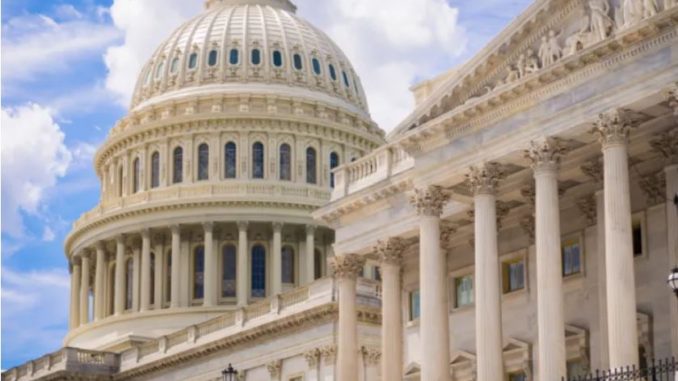
It’s hard to believe, but 32 years have passed since enactment of the Religious Freedom Restoration Act (RFRA, P.L. 103-141), a 1993 law that clarified federal policy as promoting religious freedom domestically. RFRA came in response to a 1990 U.S. Supreme Court decision, Employment Division of Oregon v. Smith, in which the Court ruled that a law could interfere with exercise of religious freedom as long as the law was of ‘general applicability,”—that is, not targeted in theory or practice at a given religious group.
Most religious groups regarded Smith as a threat to religious freedom. A state could always trump religious freedom as long as it could concoct some generic reason for a given policy that did not specifically target a religion as a religion. Smith involved peyote use by the Native American Church, but the same principle could be employed against Catholics using wine for the Eucharist if, for example, Prohibition-type laws ever came back. The consensus against Smith was so deep that RFRA passed the House unanimously and the Senate 97-3. Bill Clinton signed it into law.
RFRA set basic federal policy to be that a law cannot interfere with a claim of exercise of religious freedom unless two things could be proved in court: there was a “compelling” reason for state interference (the strictest standard) and the interference was the “least restrictive” way to achieve that purpose. In short, RFRA shifted the burden of proof from the believer on to the government, which had to show its interference with religious freedom was absolutely necessary and there was no other way to achieve that end.
I mention RFRA because it was a landmark law to protect believers. Similar legislation is now being proposed for parental rights: the Families’ Rights and Responsibilities Act (FRRA).
FRRA is legislation introduced in Congress (S.204 in the Senate; HR 650 in the House) that would write similar protections for parental rights permanently into federal law.
On June 1, Americans marked the 100th anniversary of the Supreme Court decision Pierce v. Society of Sisters, a landmark case in which the Supreme Court unanimously affirmed parents’ rights. Pierce involved an Oregon law that tried to force all children to attend only public schools. It would have destroyed Catholic schools in the state by treating attending them as noncompliance with compulsory education laws.
The Supreme Court voiced a full-throated defense of parents’ rights, insisting they–not the state–had responsibility for their offspring’s upbringing. “The child is not the mere creature of the state.”
In the 1920s, the Supreme Court vigorously advanced parental rights, but over the ensuing years, Pierce was not frequently invoked. It wasn’t until the 1970s that another similar parental rights case reached the Court: Yoder v. Wisconsin, in which Amish parents successfully won exemption from a Wisconsin compulsory schooling law for their oldest children, for whom traditional Amish culture had its own patterns to get them ready for life.
Meanwhile, parental rights are coming increasingly under assault. That’s especially true in education. The Supreme Court will rule this month in Mahmoud v. Taylor, in which a Maryland school district is trying to force kids from preschool through fifth grade to participate in a gender ideology-infused “family life” curriculum with no opt-out option for objecting parents. The school board is expected to lose.
Meanwhile, subversion of parental rights in education occurs elsewhere. School boards impose sex education programs, usually permeated with gender ideology, and tell parents nothing. The boards adopt their own “don’t tell” policies, allowing confused kids in school to “identify” as another gender and/or use another name without parental knowledge or consent. In the name of “equality,” parental rights to raise a child according to their moral standards are subverted when overnight trips include sleeping arrangements according to “gender,” not sex, forcing kids to sleep in mixed sex rooms.
Of course, that’s just a corollary of forcing kids into “gender-identifying” mixed sex locker rooms, sports, and bathrooms. And there is always pressure, especially in blue states, to regulate homeschooling in such a way as to compel such parents to advance those ideologies in their instruction at home.
The other lightning rod for usurpation of parental rights is healthcare. In many ways, the Supreme Court has been the primary offender here when, under its abortion license, it held in Planned Parenthood v. Danforth that parents could not veto their minor daughter from obtaining an abortion but instead inserted a judge to offer “judicial bypass” to their objections. In various states—especially those that have been writing abortion into state constitutions after the Dobbs decision—that violation of parental rights runs even deeper, saying parents do not even necessarily have a right to be informed of the abortion. The perils of such ignorance increase with the proliferation of trans-state-lines shipment of abortion drugs.
But it’s not just abortion. It’s usually everything connected with the reproductive system. Planned Parenthood peddles contraceptives to minors without parental knowledge or consent (though it would not give a child an aspirin without reams of paper). At a certain point, parents’ access to their minor teen’s health records is limited: a kid can be on HIV medication without a parent knowing. In an emergency, a kid on medications whose parents know nothing about can be dangerous.
And, as we see in Colorado, some states are becoming increasingly bold, claiming rights to force Child Protective Services on parents who do not “affirm” gender transitions. Others are declaring themselves “sanctuaries” for minors evading parental control of their “transition journey.” And, if you don’t buy into that agenda, the state may classify you as less deserving of custody in a divorce, maybe even “unfit” to be a parent (and certainly a foster or adoptive parent).
FRRA would codify in federal law legal protections similar to RFRA, making clear parents have “primary responsibility” in raising their child. FRRA itself reflects a Catholic theological position: parental rights precede and are not conferred by governments. It says explicitly that Congress “finds” that parents’ rights are “pre-political, natural rights,” i.e., they preexist and do not come from the state. That quintessentially Catholic principle is under pressure from people who argue parenthood is a “legal” category whose designation comes from the state.
FRRA explicitly protects parents’ rights at the federal level to “direct the upbringing, education, and healthcare of their children,” including according to their religious convictions. And, like FRRA, it insists that any law whose effect would interfere with those parental rights would be subject to strict legal scrutiny, i.e., require a “compelling” governmental purpose and be the “least restrictive” way of achieving that purpose.
Yes, FRRA’s impact is limited. The bill affects federal, not state, matters. Some states may and likely will continue to usurp parental rights, which means those abridgements will have to be fought out in the courts. And, under a Trump Administration, violations of parental rights are unlikely. But even with any change in the political makeup of Congress, it’s unlikely that any bills Catholics saw as abridging parental rights would get past the President’s desk.
What does FRRA do? Two major things.
First, it sets a federal standard to protect parental rights. It signals that the federal government holds that standard, both as a symbol and as an educational prod, for states to proceed in the same direction.
Second, there is always the possibility that some future administration may choose to placate “progressive” agendas at parental rights’ expense. Having FRRA in federal law would be an obstacle.
FRRA’s prospects are mixed, though most analysts think the current federal political configuration is its best chance. FRRA should pass a Republican-controlled House, something less likely if Democrats take control there in 2026. FRRA’s biggest challenge now is the Senate: it will need to overcome a 60-vote threshold filibuster, requiring seven Democrats to join the 53-member Republican majority (provided it holds). President Trump almost certainly would sign it. Once parental rights are ensconced in federal law, backpedaling against claims of their abridgement would be all the harder. No one should have illusions, however, that FRRA could assemble the massive bipartisan support RFRA got 32 years ago.
Right now, both bills are pending in their respective chambers’ Judiciary Committees. S.204, sponsored by Sen. Tim Scott (R-SC), has 5 additional cosponsors; HR 650, by Rep. Virginia Foxx (R-NC), has 14.
If you value the news and views Catholic World Report provides, please consider donating to support our efforts. Your contribution will help us continue to make CWR available to all readers worldwide for free, without a subscription. Thank you for your generosity!
Click here for more information on donating to CWR. Click here to sign up for our newsletter.









